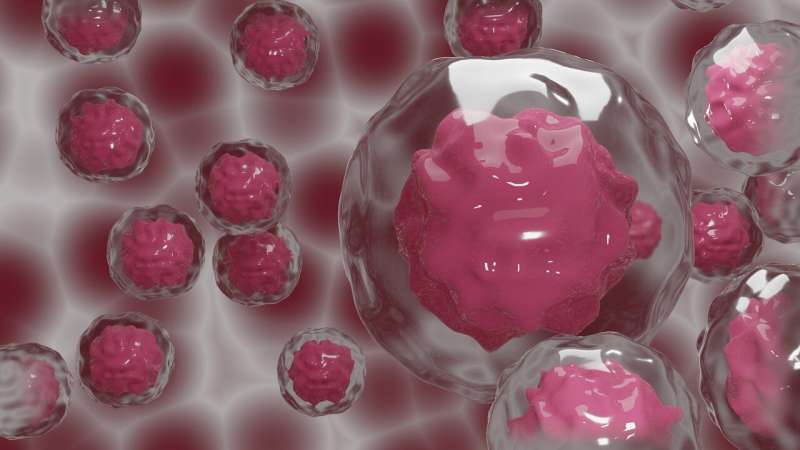Credit: CC0 Public Domain
Researchers at The University of Texas MD Anderson Cancer Center have discovered that mutant KRAS and p53, the most frequently mutated genes in pancreatic cancer, interact through the CREB1 protein to promote metastasis and tumor growth. Blocking CREB1 in preclinical models reversed these effects and reduced metastases, suggesting an important new therapeutic target for the deadly cancer.
The findings were published today in Cancer Discovery and presented at the virtual American Association for Cancer Research (AACR) Annual Meeting 2021 by Michael Kim, M.D., assistant professor of Surgical Oncology and Genetics.
"To our knowledge, this is the first study to show how these two major genetic drivers work together to promote tumor growth and metastasis," Kim said. "We learned that signaling downstream of mutant KRAS directly promotes mutant p53 activity. This discovery provides not only a new therapeutic target but unveils a vast transcriptional network that is activated downstream of these mutant proteins."
Mutations in KRAS and TP53, the two most frequently mutated genes in all human cancers, co-occur in roughly 70% of patients with pancreatic cancer. Mutant KRAS, found in 95% of pancreatic cancers, leads to an activated protein that aberrantly triggers many downstream signaling pathways. Mutant TP53 results in the loss of the proteins' tumor suppressor function, leaving the mutant protein capable of fueling additional oncogenic processes, such as metastasis.
Unfortunately, no current therapies are able to block the mutant forms of KRAS or p53 prevalent in pancreatic cancer, so there is a need to identify common, alternative therapeutic targets downstream of these proteins that could lead to more effective treatment regimens for pancreatic cancer, Kim explained.
To learn how mutant KRAS and p53 might be interacting, Kim's team of researchers collaborated with Gigi Lozano, Ph.D., chair of Genetics, to develop a novel mouse model of pancreatic cancer that expresses oncogenic KRAS and mutant p53 specifically in tumor cells, leaving the tumor microenvironment unaltered.
In this model, the team observed more than twice as many metastatic lesions than was seen when p53 was genetically removed, suggesting that the mutant proteins together cause a significant increase in metastatic potential. With further study, the researchers discovered mutant KRAS activates CREB1, a transcription factor that then directly interacts with mutant p53 to promote the aberrant expression of hundreds of genes.
This activation results in the increased expression of FOXA1, which in turns creates a new cascade of events leading to increased activity of the Wnt/β-catenin pathway, both of which promote cancer metastasis.
Using an available small-molecule drug to target CREB1 in this model resulted in decreased expression of FOXA1, β-catenin and associated target genes, along with a corresponding reduction in metastases. While early, these findings suggest that targeting CREB1 may be a viable strategy to block the metastatic effects of mutant KRAS and p53 in pancreatic cancer.
"The identification of this cooperative node suggests that there should be increased focus on CREB1 as a target that could be therapeutically exploited to improve patient outcomes," Kim said. "With the frequency of KRAS and TP53 mutations in human cancers, the implications of our findings may extend far beyond pancreatic cancer."
Going forward, the researchers hope to discover other important elements working downstream of mutant p53 that may affect the cancer cells or the surrounding tumor microenvironment. A greater understanding of this complex network may point to additional therapeutic targets or combination approaches to better treat pancreatic cancer.
Journal information: Cancer Discovery
Provided by University of Texas M. D. Anderson Cancer Center























